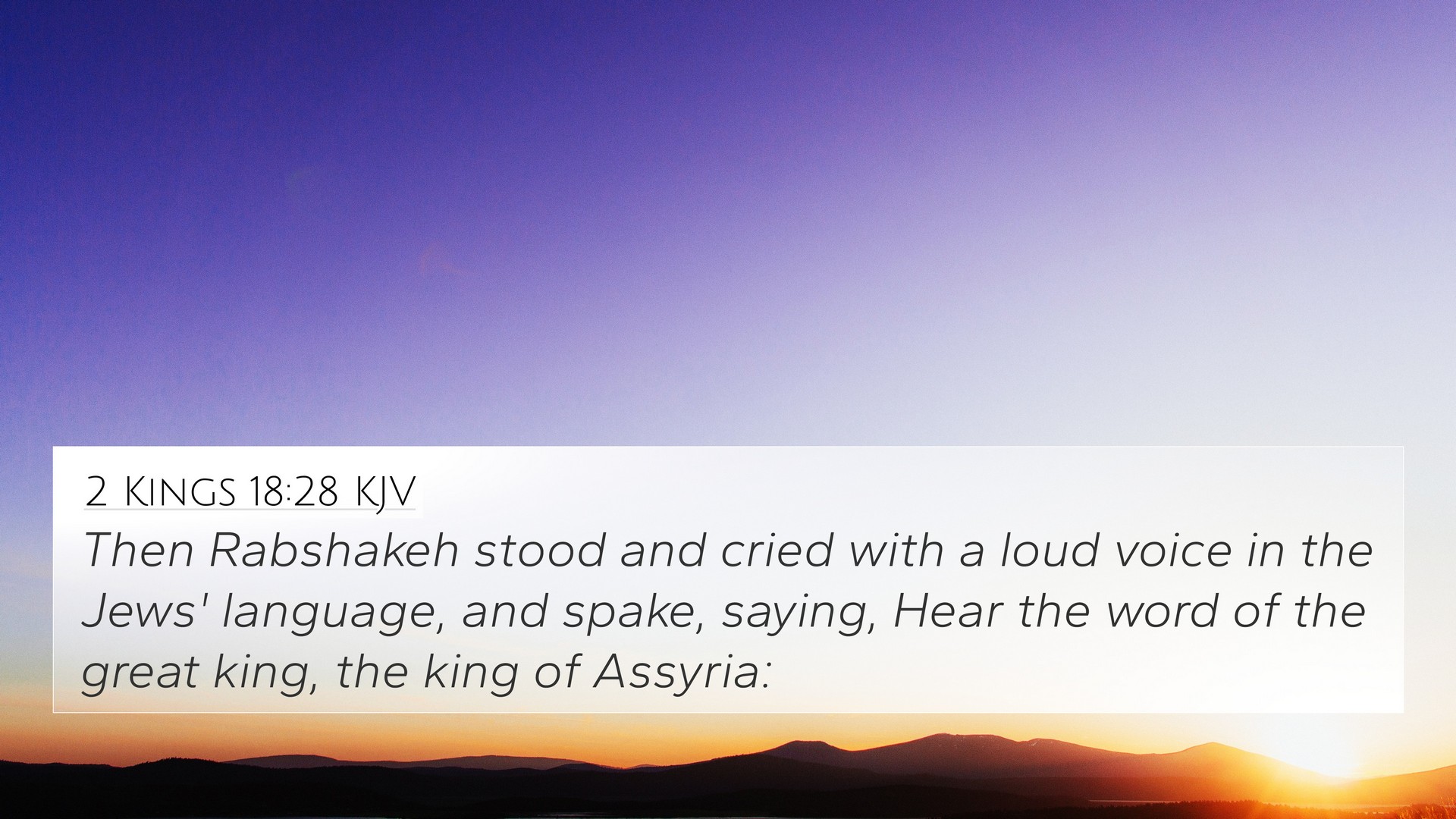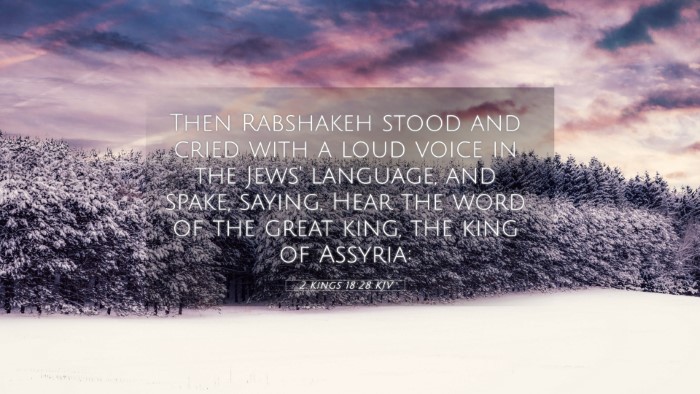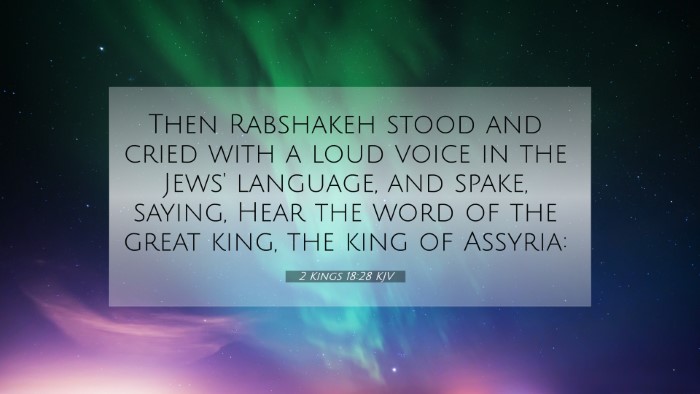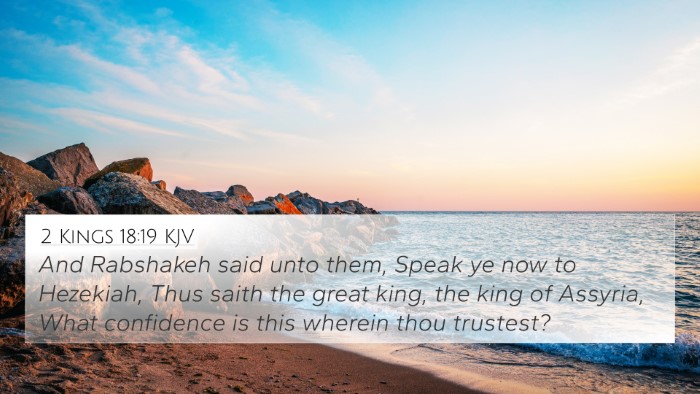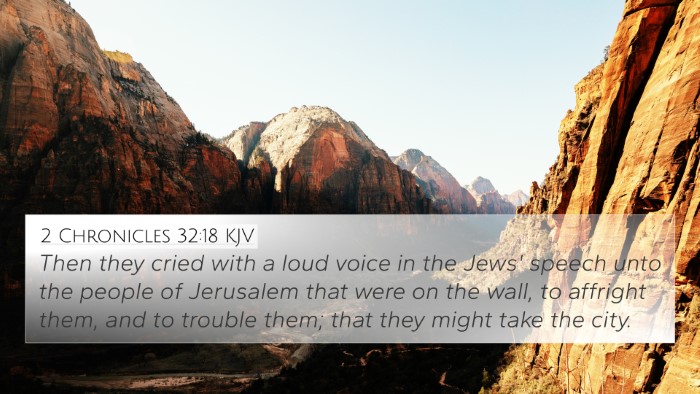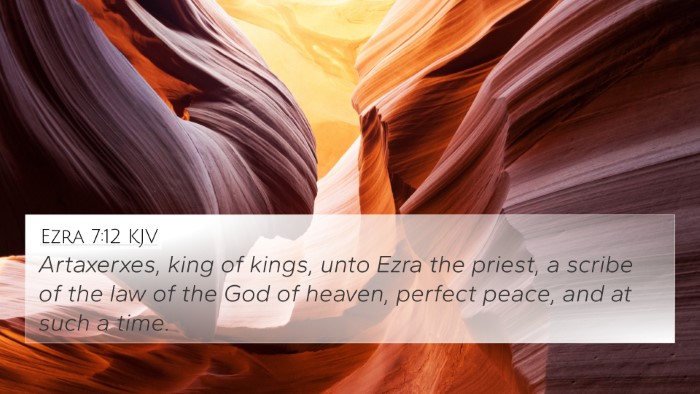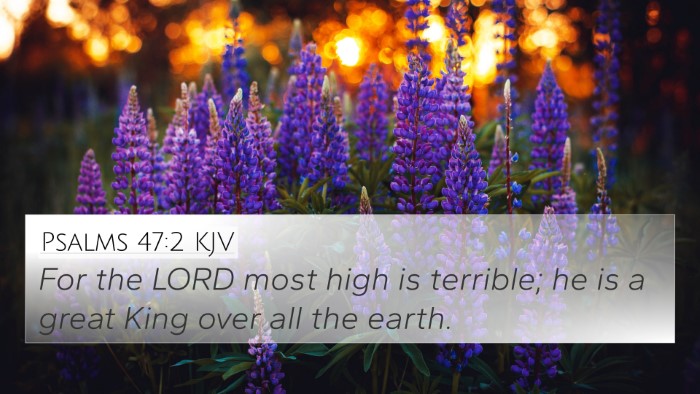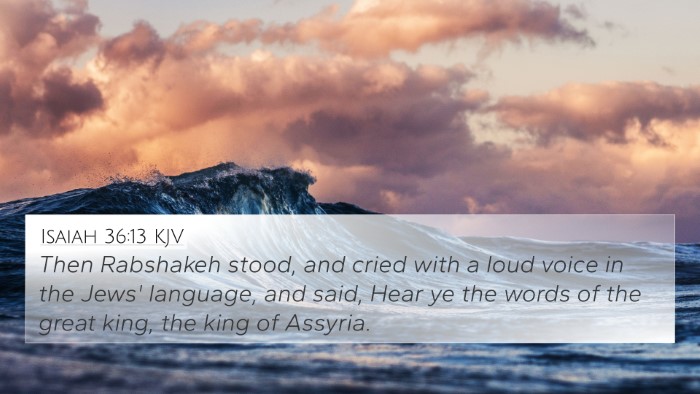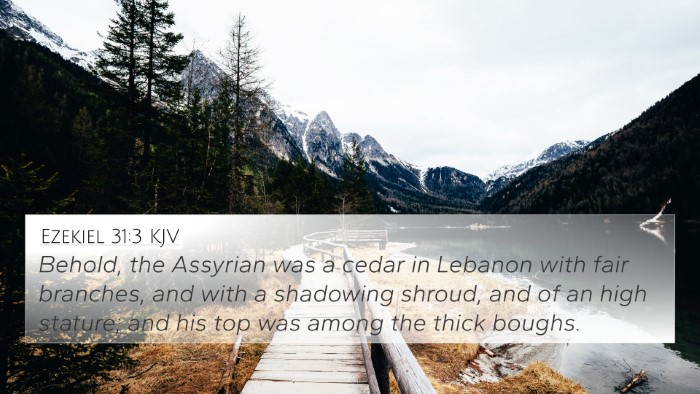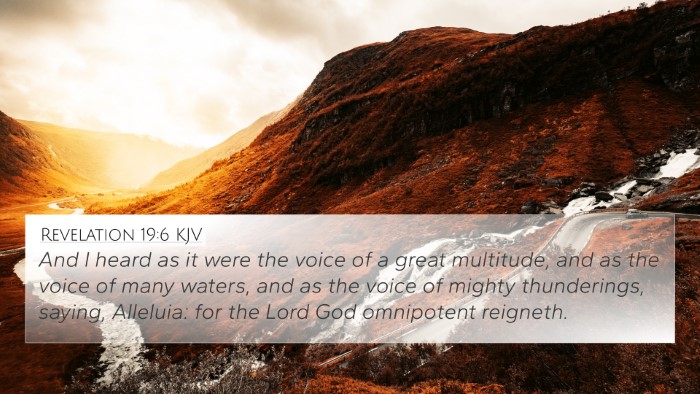Understanding 2 Kings 18:28
2 Kings 18:28 states: “Then the Rabshakeh stood and cried with a loud voice in the Jewish language, and said, 'Hear the word of the great king, the king of Assyria!'
Verse Context Overview
This verse occurs during a critical moment in the history of Judah, as the Assyrian empire, represented by the Rabshakeh (a high official), attempts to intimidate the people of Jerusalem. This event highlights themes of faith, the power dynamics between nations, and the response of God's people to external threats.
Commentary Insights
- Matthew Henry: Henry emphasizes the audacity of the Assyrians to publicly challenge God's people. He notes that the Rabshakeh's boastful proclamation was an attempt to instill fear, showcasing the arrogance of foreign powers against the backdrop of Yahweh’s sovereignty.
- Albert Barnes: Barnes points out that the Assyrian tactic involved psychological warfare. The use of the Hebrew language in this proclamation was strategic, aiming to demoralize the inhabitants of Jerusalem. He suggests that such intimidation tactics are common in historical conflicts.
- Adam Clarke: Clarke focuses on the implications of the Rabshakeh’s message. He interprets this as a challenge not only to Judah's earthly authority but to the very authority of God Himself, pushing the idea that the Assyrian king believed he could defeat the God of Israel.
Theological Implications
The proclamation made by Rabshakeh bears significant theological weight. It raises questions about faith during crises and the nature of divine protection. The historical context reminds believers of the vulnerabilities faced by those who strive to uphold God's commandments amidst fierce opposition.
Cross-References
This verse can be cross-referenced with several other biblical passages that demonstrate similar themes of divine authority, fear in the face of adversity, and God's promise of protection:
- Isaiah 36:1-22: This parallel account provides a fuller picture of the Assyrian invasion and includes the same verbal assault directed at the Israelites.
- 2 Chronicles 32:9-15: This recounts the same events but from a different perspective, highlighting the responses of Hezekiah and his advisors.
- Psalms 46:1-3: Reflects on God as a refuge and strength, underscoring His protection in times of trouble.
- Isaiah 37:10-12: Further elaborates on the threats posed by Assyria and God’s reassurance to the people.
- 1 Kings 18:24: A similar confrontation where the power of God is tested against the prophets of Baal demonstrates the seriousness of such challenges against divine authority.
- 2 Thessalonians 3:2: Highlights the need for strength and faith in the face of adversaries, relating to spiritual warfare.
- Romans 8:31: Amplifies the idea of God being for His people's success in times of distress.
Thematic Connections
This verse prompts us to reflect on:
- The nature of spiritual warfare and how it manifests in the lives of believers.
- The response of faith in the face of imminent threats and ridicule.
- The sovereignty of God as depicted through the historical narratives and prophetic writings.
Bible Verse Parallels
Exploring the connections between these scriptures enhances our understanding of God's protective nature. They remind us that throughout history, God has responded to the cries of His people:
- Exodus 14:14: Reaffirms the belief that God fights for His people.
- Matthew 10:28: Encourages believers to fear not those who can kill the body but rather God who can destroy both body and soul.
- Psalm 91:1-2: Affirms the assurance of God as a refuge and fortress, echoing the themes present in 2 Kings 18:28.
Conclusion
2 Kings 18:28 serves as a powerful reminder of the complexities of faith amid intimidation and peril. By studying this verse alongside its cross-references, believers can draw strength from biblical precedents that highlight God’s enduring protection and the importance of unwavering faith.
